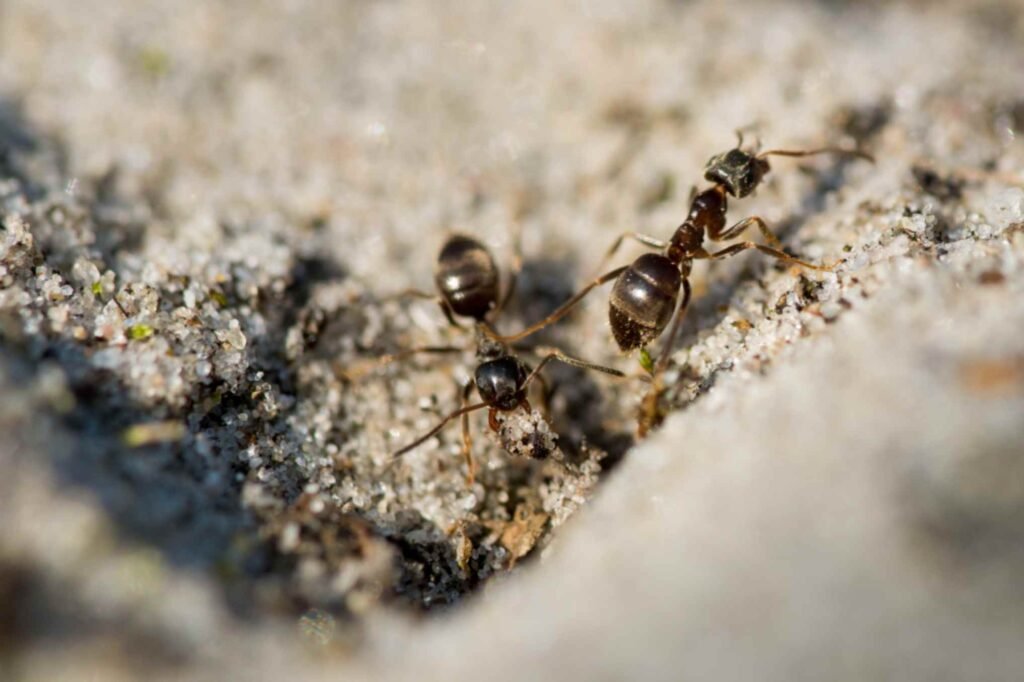Table of Contents
ToggleHow to Keep Ants Away: Simple and Natural Solutions for Your Home

Effective Ways to Keep Ants Away
Despite this tiny size, ants are some of nature’s most powerful beings and could, in a wink of an eye, transform your peaceful home or colorful garden into an epic battle zone, if I may use that term loosely. These insects are capable of breeding in your premises in thousands, thereby creating cobweb like hurdles, making you feel like you are trapped in an ant hill instead of being in your own home.
The truth is, because they are so small, they may seem like they could not possibly be dangerous, however, these animals are persistent and are an actual threat as they can spread dirt and disease on your food items, the foliage of your plants or trees—even in Hydroponic Gardening setups—and some can even chew through your walls or wooden partitions. Hence it is not surprising to find most people pulling all their energies searching for ways to get rid of these persistent nuisances.
Oh no, do not despair, dear reader in this blog, you will find numerous techniques that can assist you in repelling ants, including common pests like black ants. It ranges from green solutions to the newest devices and shows that there is something for everybody here. So let me get started!
Nipping It in the Bud:
Identifying the Ant Problem
The first way to begin to fight your ant foe is to understand them. Different breeds of ants have their tastes in food and sites they prefer which may determine how they can intrude your home. Examples of pests found in households are; argentine ants, odorous ants, carpenter ants and fire ants. It will be easier to prevent and control a pest once you identify the species most likely to invade your home or garden.
Ant-proofing Your Home:
Ways to Avoid Insect Firm Invaders-Specifically the Ants
- Clear the Clutter: Clutter is one of the biggest allies of ants, so it is necessary to always clean your house as much as you can. They seldom clutter and thoroughly clean to make sure that your residing area stays undesirable to ants.
- Seal the Deal: Ensure there are no gaps at the base of walls, doors or windows within your home to discourage ants from gaining entry into your home. If such a few carefully done repairs are carried out then an ant invasion may well be stalled.
- Store Food Properly: Be sure to put your food in an airtight container, and ensure that you keep your environment clean devoid of loose foods like crumbs. Like other insects, ants are attracted to food sources so removing avails that expose them to temptation will help reduce the amount of ants inside your house.
- Ant-proof Your Garden: Make sure your garden is clean and there is no material that accumulation of ants may find preferable. It is important to pick up fallen fruits and decaying wood, as these areas are tempting for ants to build a nest.
- Natural Repellents: Minor natural elements like cinnamon, cayenne pepper and peppermint oil are known to repel ants. These powders or oils can be poured around the parts of the house you have seen the ants in or you can make your natural ant repellent by taking equal parts of water and white vinegar and spraying it around your house, especially the compounds.
Chemical Warfare:
Ant Baits and Insecticides and their management
However, if you realize that your ant problem has reached this stage where prevention measures cannot help anymore then it is high time to call for reinforcements. One of the most common sophisticated tools is the ant baits, which are essentially food for ants that contain a slowly working poison that kills off the colony. Simply put the baits in places that you know the ants are normally seen, and the numbers will greatly reduce.

Insecticides are also effective tools against ants, but they should be used carefully. One should always abide with the manufacturer requirements while handling it and ensure that he does not get in touch with it. Non-repellent aerosol insecticides can be sprayed directly on the trails and nest of ants or also you can apply ant killers in granules on the perimeters of your house to avoid ants from trespassing.
The Ecology of Ant Control:
Bye With Nature To Tackle The Bugs
In case you want to adopt greener means to get rid of them then you will need to combine natural methods into your strategy on how to keep ants away. Many living organisms like ladybugs, spiders, and nematodes are known to control ant infestations without the need for toxics. Some of the beneficial critters can be used as pest control by creating the environment that they want in your garden.
Naturally, to DIY buffs natural ways of eliminating ants may be used by using diatomaceous earth, boric acid or scraping the ants using the orange or lemon peels. Another fairly effective way of getting rid of ants is to spread Diatomaceous earth, a fine white powder from fossilized aquatic Protists around the ant trails: the tiny silica skeleton of the diatoms will dehydrate the ants and kill them. Perhaps, one of the simplest homemade solutions is boric acid, which is toxic to ants but can be attractively disguised as honey or sugar. Finally, orange and lemon skins let out natural oils that deny ant access into your house; you can place them around the points that ants use to infiltrate your house.
Conclusion
Spotting ants can be annoying and enraging at the same time, however, there are certain things you should know and do in order to effectively protect your home and garden from such invasions of those remarkably persistent small insects. No matter whether you are trying to sort out minor ant invasions or a major infestation war, there are products for all those types including eco-friendly ones for repelling those tiny creatures. Therefore, do not let these little intruders ruin your good moods any further. Take all the knowledge and the tools described in this blog on how to keep ants away and make your home, your bedroom, what it used to be, your personal haven.
Questions ? Look here.
What are the most effective ways to get rid of ants at home?
- The most effective ways include sealing entry points, storing food properly, using natural repellents like vinegar or peppermint oil, and applying ant baits or insecticides.
How can I prevent ants from invading my house?
- Prevent ants by keeping your home clutter-free, sealing gaps or cracks, cleaning up food crumbs, and maintaining proper storage of food in airtight containers.
What natural remedies can repel ants?
- Natural remedies include cinnamon, cayenne pepper, lemon or orange peels, peppermint oil, diatomaceous earth, and vinegar sprays.
Are ant baits effective for large infestations?
- Yes, ant baits are highly effective as they poison the entire colony over time when ants carry the bait back to their nest.
What is the best natural ant repellent for gardens?
- Using fallen fruit cleanup, natural predators like ladybugs, or spreading diatomaceous earth can effectively repel ants in gardens.
